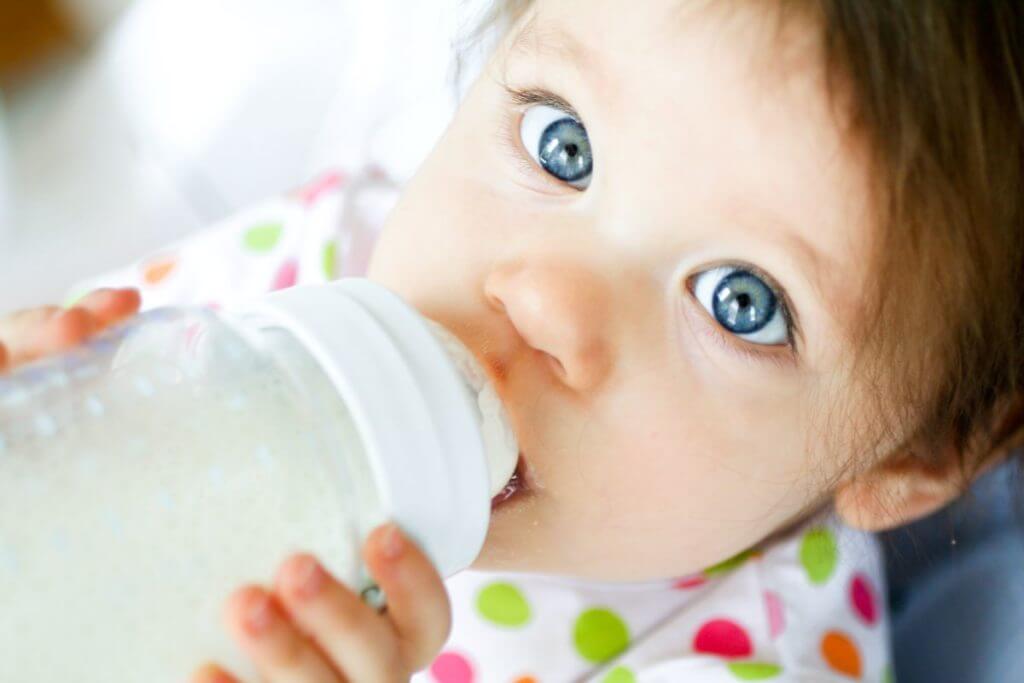
Efforts to combat the nationwide formula shortage have taken flight, signaling hope for families who are increasingly desperate to find the essential product. Military planes began flying in formula this week to refill some of the supply that has drastically dwindled since February, when Abbott Nutrition recalled powdered formula from its large Sturgis, Michigan facility.
The recall included EleCare and EleCare Jr powdered hypoallergenic formulas, resulting in families with infants and older children with food allergies being particularly hard hit. The shortage of formula in general then led to a huge run on other brands’ hypoallergenic formulas, which are now scarce.
The shortage continues to be especially challenging for patients with dairy allergies, Food Protein-Induced Enterocolitis Syndrome (FPIES), or eosinophilic disorders, such as eosinophilic esophagitis (EoE), a form of food allergy where certain foods trigger damaging inflammation in the esophagus.
“We are still struggling to find enough formula for my kids,” says Melissa [last name withheld for privacy]. Last month, Allergic Living wrote about her children Evan, 9, and Amira, 12, who both rely on formula due to multiple food allergies and eosinophilic disorders. “The supply of amino acid-based formula appears to have diminished,” says Melissa of Draper, Utah. In social media, “the posts of people asking for help have become more heart-wrenching.”
But finally, the shortage is being addressed. Nestle announced that it would fly to the United States Gerber baby food formula from the Netherlands, and Alfamino hypoallergenic formula from Switzerland. When no commercial flights were available, under the Defense Production Act, President Biden authorized the use of U.S. Air Force planes to carry the formula as part of “Operation Fly Formula.”
The first of several flights from Europe arrived at Nestle’s Indianapolis distribution center on May 22. That hypoallergenic formula is expected to be distributed to hospitals, pharmacies and doctor’s offices.
Working to Relieve Formula Shortage
A total of about 1.5 million, 8-ounce bottles of hypoallergenic formulas (Nestle Health Science Alfamino Infant, Alfamino Junior and Gerber Good Start Extensive HA) are expected to arrive on this week’s flights.
Nestle’s Alfamino (powdered) is among the options for patients requiring amino acid-based formulas without the recalled EleCare Jr. Other options include:
– Nutricia’s Neocate Splash (ready to feed) and Neocate Junior (powdered);
– Enfamil’s PurAmino (powdered);
– and Cambrooke’s EquaCare Jr. (powder) and Essential Care Jr. (powder).
Those companies also are working to meet the demand. Nutricia offers a bi-weekly bulletin on its website outlining strategies to meet demand. The company is prioritizing existing automatic re-orders. It also recommends that customers ask healthcare providers whether another flavor or version of the product would be safe to use. Enfamil states on its website that it has decreased the time it takes to get its formula to market by having trucks ready to deliver as soon as products are ready.
In invoking the Defense Production Act, the Biden Administration also requires suppliers to prioritize getting ingredients and other resources to the formula manufacturers, ahead of other customers.
Abbott Production to Restart
Production is slated to start again in a couple of weeks at the Abbott Nutrition facility in Sturgis, which was closed with the recall. An FDA investigation led to that closure in February, following consumer complaints about Cronobacter illness in children who had consumed formula from that plant.
Abbott and the Justice Department agreed to a proposed settlement to resolve the government’s complaint, which alleged failure to comply with quality and safety regulations. The consent decree outlines steps Abbott must take to restart production at the plant, such as overhauling safety protocols. Once production resumes, it could take another six to eight weeks for that formula to be available to consumers.
“While I am hopeful that an end to this shortage may be in sight, months away is a long time for a product people depend on for daily survival,” says Melissa in Utah.
On May 22, Abbott Nutrition CEO Robert Ford apologized for the shortage. “We’re sorry to every family we’ve let down since our voluntary recall exacerbated our nation’s baby formula shortage,” Ford wrote in The Washington Post.
More Formula Shortage News
Following are more developments in the continuing formula shortage:
- Canada: Families in Canada are feeling the strain of the diminishing formula supply, as well. Health Canada issued an interim policy to address the shortage. It allows several formulas produced in countries with the same manufacturing standards to be imported to Canada, and temporarily lifts some labeling requirements.
- Price-gouging: As parents desperately scour stores, websites and Facebook groups for formula, they must be on alert for scams and price-gouging. Despite eBay’s price-gouging policy, which demands reasonable prices for essential items, consumers are finding high markups for formula on eBay and sites, such as Facebook Marketplace, Craigslist and Amazon. For example, an article in NJ.com reported on a mom who located her son’s PurAmino formula on eBay. It usually sells for about $45 per can, but the seller wanted $87.50 per can. Another mom found a case of Neocate Splash for her 6-year-old son for $288, up from $177 per case. Last week, New Jersey’s Gov. Phil Murphy declared a state of emergency, activating state price-gouging laws. Mayor Eric Adams also issued an executive order to crack down on formula price-gouging in New York City.
- Scammers: The Federal Trade Commission (FTC) warns parents to be on the look out for scammers trying to take advantage of consumers’ desperation. Customers are being tricked by fake websites or social media profiles, only to pay for formula that never arrives. The FTC recommends that caregivers research sellers by looking up the company with key words like “review”, “complaint” and “scam”. Also, be on the lookout for sites that require gift cards, money transfer or cryptocurrency for payment. The FTC says they are likely scams.
Related Reading:
Stressed Families Grapple with Hypoallergenic Formula Shortage





